|
I was asked during a live stream how I recommend working on endurance when playing guitar. This video contains my answer!
0 Comments
I was asked during a live stream how I recommend training the ears to hear fast speeds when playing guitar. This video contains my answer!
Two way pick slanting is something I developed without even knowing it. Swiping is also something that occurred as I kept pushing my speeds higher and higher.
This video talks about how I started pick slanting, when I use it, and when I don't. The following text is the script used in making this video. Being one of the fastest guitar players on the planet is extremely difficult. There is, without a doubt, a genetic component involved with how fast and how technically proficient you can become.
With only a small percentage of basketball players actually making into the NBA, the same thing can be said about guitar players actually making it as a professional, yet alone being recognized as one of the best, fastest, and technically advanced. Do you think you have what it takes? In this video, we'll take a look at what I feel it takes to become a top level shred guitar player, and setting realistic expectations for yourself on your guitar playing journey. The subject matter of this video is broken into the following seven parts: Part 1 - Having a Warrior Mindset, the Patience of a Monk, Laser Like Focus, and Obsession Part 2 - What are the Chances of Playing Like Your Guitar Heroes? Part 3 - Picking Mechanics (or movements) Change as You Progress in Speed Part 4 - Why and How to Use Your Metronome Part 5 - Repetitive Strain Injury (the risk of getting hurt) Part 6 - How Long Should You Practice Part 7 - Things That May Hold You Back Part 1 - Having a Warrior Mindset, the Patience of a Monk, Laser Like Focus, and Obsession If you want to be the best you can be at anything, you'll need to give it your all. Playing faster than 90% of the guitar playing population means you're going to have to give it everything you've got. You'll need to train, push yourself, devote yourself, become obsessed with it. You're going to have to go at it like a warrior. You're also likely not going to get as fast as you want to be in the time you'd like. Reaching the top of your genetic potential takes time. With guitar, you are going to be developing and pushing fine motor skills, training your ears to hear extremely fast rhythms, and these things are going to take time; more time than you might like. You're going to have to have the patience of a monk. Making mistakes is inevitable when learning to play. There's no way around it. However, it's important to recognize when mistakes are made so you can do something about them. Practice makes perfect is a load of bullshit. Only perfect practice makes perfect. Too often I have seen students continue playing when mistakes are made instead of addressing and fixing them immediately. As just mentioned, making mistakes is inevitable. Knowing what to do when mistakes are made is crucial to getting the most out of yourself and your practice. You've got to focus on your accuracy when you work on getting faster. If you just keep throwing yourself at the notes with an attempt to be fast, you're most likely going to sound sloppy and then you'll get really good at sounding like a shit show. Don't do that. Chase accuracy first - not speed! There are certain times when trying to play faster than you accurately can is a good idea, but I'd say it's very rare and should only be used as a last resort for when you're stuck with getting a particular piece of music as fast as you need it to be. For beginners, I don't think it's ever a good idea unless you're just trying to have fun. For all of you trying to be the best guitar player you can be, you need to pay very close attention to how you are playing and how everything sounds. You need to have laser like focus. Several years ago I read something Steve Vai said, and it was about how he feels pain if he doesn't get to play his guitar. It's probably safe to say that Mr. Vai is regarded as one of the most impressive guitar players out there, and he has certainly been obsessed with playing - far more than me too! My mental health is directly tied in to playing music. If I don't play something everyday, my depression gets worse. I have to play. I need to play! Not only must you come at shred guitar with the mindset of a warrior, the patience of a monk, and laser like focus, if you don't have this innate obsession with playing, you will not become one of the fastest guitar players out there. Period. Part 2 - What are the Chances of Playing Like Your Guitar Heroes? If you're not obsessed with playing everyday, then chances are you won't be as good as your guitar heroes. But, what if you DO play all the time? Is that enough? No. No it is not. I've had people and students tell me over the years how they want to be as good as several guitar greats. The problem with this, is that those guitar greats are not even as "good" as all those other guitar greats. Steve Vai is as good as Steve Vai. Joe Satriani is as good as Joe Satriani. Yngwie Malmsteen, Buckethead, Eric Johnson, etc. You name a guitar player known for virtuosity and all of them would have some level of difficulty playing everyone else's stuff. Maybe not a lot, but these guitar idols worked their asses off developing their own styles. Sure, you can have an extremely rare exception like a child prodigy coming along who can replicate damn near everything. Most likely you are not a child prodigy. I'm pretty sure child prodigies are too busy actually playing and replicating others instead of watching videos like this. Of course you can learn to play many things by many players. But, to think you can be just as good as all of these players is unrealistic. And, to think you can be just as fast as the fastest players who ever existed is even more unrealistic. After all, these are the top of the top. Only a very small fraction of the guitar playing population can be the fastest. Even if you play obsessively, if you don't have the genetics to allow you to excel at guitar playing, then you won't. Just look at how many people try making it in professional sports. It's damn near impossible! I've heard stories of how Michael Jordan didn't make his high school basketball team, so he worked tirelessly to better himself. Obviously, it worked. But, do you really think it was just hard work that made him the man he became? Don't you think there are thousands of others who may have worked just as hard, or perhaps harder? Jordan had an extraordinary work ethic, no doubt. That work ethic combined with his genetic potential is what allowed him to excel and become one of the most, or possibly the most well known sports figure in history. I've been a fan of bodybuilding for a while now. I had dreams, like many boys, of being big like Arnold. Turns out that's not going to happen. Just like Michael Jordan, Arnold Schwarzenegger had a work ethic and dedication to be the very best, and the genetics to allow it. Same thing for anyone on the Mr. Olympia stage. Just because someone takes a ton of steroids doesn't mean they'll become giant. You need the genetics to allow you to get that big. I love training in the gym, and I can still better myself day after day, week after week, year after year. Just because you might not be able to play crazy difficult guitar shred pieces, or pick 16th notes faster than 300 BPM doesn't mean you can't improve, and still have fun with guitar. That's a big takeaway message right there - focus on making yourself better than you were the day before. Even if you won't be in the top 10 fastest pickers out there, you can still be faster than you were last month, especially when you're first starting out. When you start out is when you have the greatest potential for growth. In the gym world, we call this noobie gains. The next piece of info I'm going to share is quite possibly going to upset some of you. This will be taking my years of working with various students, and going off of how they have progressed. Most of you will be average, no matter how hard you try. What is average? You can expect to be picking 16th notes between 160 - 180 BPM. And, that's just picking simple stuff. Intricate note choices are most likely not going to happen for most players at those speeds. I am sorry. I hate saying stuff like this, because I use to preach and believe that if you work hard enough at this guitar game you too can be insanely fast and play any difficult thing you want. But, that's just not the case. If you can play power chord progressions reasonably well within the first few months of picking up the guitar, and can accurately alternate pick 8th notes close to 200 BPM, I'd say you have a pretty good shot of at least hitting the average mark for shred guitar speeds. If it takes you close to 6 months or longer to play power chord progressions where every note rings out clear, no buzzing, no bending strings out of tune, and moving chords at the correct time, you're probably not going to reach average. I just don't see it happening. By 6 months of playing, power chord progressions should not be an issue if you're going to reach the average fast playing speeds. If you struggle to play a scale with alternate picking, up and down all six strings with 8th notes at only 120 BPM, I find it highly unlikely you will ever reach the average fast picking speeds. After a few months of working on something like this, alternate picked 8th notes at 120 BPM should not be a struggle if you have what it takes to reach shred level speeds. I've had some students who, even after trying several different approaches, could not gain control over their alternate picking even after nearly 9 months of lessons, and that's on top of the multiple YEARS of playing on their own and taking lessons with other people. Some of you will be on the spectrum of having a next to impossible time getting to average shred guitar speeds, and some of you just won't make it no matter how hard you try. It sucks to hear, and I hate saying it, but it is true. Remember the takeaway message mentioned just moments ago - you can still become a better guitar player today than you were yesterday. On the other side of the spectrum are the few who pick things up fairly quick. Speaking from my own experience, I remember getting the opening riff to Rush's song Spirit of Radio up to speed and faster than my dad could play just a few weeks after he showed it to me. This man had been playing for well over 20 years at this point. I hadn't been playing for even one. Within one year of playing guitar, people at my high school said it sounded like I had already been playing for 10 years. If people are saying things like this to you, and you haven't even played more than a few years, there is a VERY good chance you've got what it takes to play technically advanced material, and play faster than most people ever could. Very few of my students have surpassed picking 16th notes at 200 BPM or more, but it has happened. Recently, a couple guys hit sextuplets at 150 BPM, and that's with picking a new note every pick stroke. That's the equivalent of 8th note triplets at 300 BPM. One student I'm currently working with as I make this video was hitting 8th note power chord progressions at 240 BPM, despite her saying how much she struggles. I told her several times that most people can barely even hit 160 BPM at her stage in the game. There's a VERY good chance she'll be one of the most advanced guitar players I get the privilege of working with. Please remember, as already stated twice before, that you can always work to be a better guitar player today than you were yesterday, regardless of your chances of being one of the fastest out there or not. As long as you're having fun and enjoying the process, then who cares how fast you get? Just play! Part 3 - Picking Mechanics (or movements) Change as You Progress in Speed How you pick at slow speeds will be different from how you play your fastest speeds. How you pick your fastest speeds may very well look different from how I do it, and how others do it. Focusing on how your picking looks in order to get going fast seems like a bad idea to me. Focus on making your notes sound good. Who cares how it looks? Yes, of course, there are going to be some obvious ways of picking that will clearly make it impossible to get going fast. But, what if you see someone using supposed "bad" or "improper" technique and they're still playing what they've set out to play? Who are you to tell them they're doing it wrong? Especially if you can't even reproduce those notes with the same sound yourself! When I play a lot of slow stuff, slow for me, I consider these things my walking speed. I will use a lot of thumb movement during my walking speeds. As I get faster, my wrist will start to help out. There gets to be a bit of a blend of thumb and wrist moving together. Eventually, it's basically all wrist. This is my jogging speed. Not much faster, and my elbow starts moving to help the wrist. My triceps and brachioradialis are what move my elbow. Just like before, a blend of these two movements occur, and eventually the picking is coming only from my elbow. This is my sprinting speed. My walk, jog, and sprints speeds will probably not be the same as yours, and your various speeds will be different from others. And that's okay. Working things up with the metronome will help you become more aware of how you pick at different speeds, and the more awareness you have of how you play can help you become a more accurate player which will help you to handle crazy fast speeds. Sure, you can just try making fast picking motions to see how it feels, and just have some fun moving quickly. There's a YouTube video I've done where I describe what it feels like and how I engage my elbow for the fastest picking I can possibly do. But, what do you do when you can start moving around all quick? You gotta gain control. Part 4 - Why and How to Use Your Metronome I could not play 16th notes beyond 300 BPM had I not worked my ass off by continually pushing myself using a metronome. My students continue to improve by following the metronome method my guitar teacher, Eric Morrison of Sac Valley Guitar, taught me. People I've never met have contacted me online to report a lot of progress with music they've been stuck with after they followed my metronome advice. If you want to make as much progress in the shortest amount of time possible, learn to use the damn metronome. If there was ever some magic pill to skyrocket your playing, it's metronome practice. But, just like knowing how to practice correctly is crucial, how you use the metronome is also just as important. Using the metronome allows you to gradually work things up. Slow speeds help you hear what you're playing, help you internalize the rhythm, and build the notes into your muscle memory and subconscious. This is so important to do and necessary, because you don't have time to think about every little detail when you're blazing it up on the fretboard. Just because your picking mechanics change as you get faster doesn't mean you should start at fast speeds. Again, you want to really drill into your mind how things are supposed to sound. You need your rhythm to be solid as you get faster and faster. If your rhythm sucks, everything suffers! Whether you are fretting a difficult group of notes, or something simple, the faster you get the harder it becomes to fret with accuracy. What if you're not going to fret things while working up your picking? You still need to train your ears to hear really fast rhythms, and internalize how things feel. Doing so will make the task of playing as fast as you can much easier. You will also build endurance for both picking and fretting while doing metronome work. All those constant repetitions can be fatiguing at first, but as you push yourself the fatigue sets in less and less. This will allow you to play for longer periods of time, and the greater your endurance the greater the likelihood of you pushing yourself faster and faster. The way I approach metronome practice, and what I have my students do, is always, always, ALWAYS start at 60 BPM. Every time you play what you're working on correctly, just one time, increase your speed by no more than 5 BPM. Keep doing this until you can't get any faster. Repeat this as many days as you need. Now, this is not a guaranteed way to get everything as fast as you want, but you'll definitely get faster than you were. To take things further when you get stuck, and for a more detailed approach on using your metronome, you can get a free eBook called the Mile High Shred Metronome Method. Check out the video description for a link to get the eBook. Michael Angelo Batio said he once practiced a particular sweep picking pattern one thousand times to get it under his fingers so he could play it fast with accuracy. Now, I don't know if he worked things up with a metronome, but the fact that one of the fastest and most technically advanced guitar players used tons of repetitions to build speed will hopefully show you the importance of such an approach. Using the metronome gives you those repetitions, and slowly gets you faster and faster. The metronome gives you something to shoot for. It's just like tracking reps and weights in the gym. You slowly add reps and weight to the bar to get bigger and stronger. You slowly add speed to the metronome to get faster. You're approaching shred guitar practice with the progressive overload principal just like when people work to get better in the gym. By slowly pushing yourself faster and faster, you give your brain and body a reason to get going faster and faster. You definitely have to push yourself to some extent or else you don't give your body a reason to adapt. You can't increase your speed if you never try going faster than what feels normal and natural. Part 5 - Repetitive Strain Injury (the risk of getting hurt) Yes, there is definitely a risk of sustaining an injury by pushing yourself to play as fast as you can. Shred guitar, in a way, is a type of athleticism. You may not be lifting heavy weights or running around on a balance beam, but you're still pushing yourself physically and mentally just as an athlete would. No athlete became the best they could be without taking the risk of being injured. You have to be willing to push yourself if you wish to reach your max potential. Period. Several people have told me that I'm going to develop crippling tendinitis in my elbow from how I pick. Guess what? I do deal with tendinitis, but it's in the arm I fret with! I believe it's from an over use of fretting for over twenty years, poor form in the gym, and not doing enough extensor work. That basically means working the muscles that open up your fingers. Carpal tunnel and tendinitis can be developed from something as seemingly harmless as typing or clicking a mouse for many many years. Same thing can happen with playing an instrument. It's just a risk any musician is going to have to take. Doesn't mean it can't be prevented, and I've certainly done a poor job of preventing it. I'm working to improve things now, but nagging injuries are common for long term athletes. Thankfully, we guitar players have far less chance of sustaining anything super serious. The advice of always stopping when you feel pain when it comes to guitar practice is something I've heard multiple times. I find this advice to be ridiculous the way it's presented. If we all stopped playing any time we felt pain then nobody would ever learn to play! Do you remember how sore your fingers would get when you were building callouses? It hurt! Having your fingers pressing against steel strings is not pleasant. What about barre chords? Those can still make my thumb muscle sore after too much use. Learning how to differentiate between good and bad pain is important. In the gym, when we want to build muscle, we HAVE to make it hurt! Those extremely difficult, intense, and gut wrenching reps are what give our bodies a reason to repair and grow. But, you need to feel the pain in the muscle. If you feel pain in your joints, this could be an issue with tendons or ligaments, in other words - your connective tissue. This is the kind of pain you want to avoid. Do NOT push joint pain! This was a mistake I made. I ended up developing a ganglion cyst on the back of my fretting hand wrist. IT HURT! I could barely move my wrist it got so bad sometimes. How did I develop this? By "pushing through the pain" because I'm a stubborn bastard who insists on pushing himself. Unfortunately, I pushed connective tissue, and not muscle. BIG mistake! The cyst is now gone, and I have learned how to position my wrist in such a way to help prevent the cyst from coming back. I have to be extra careful now. When I pick as fast as I can, I may do it for too long or do so without being warmed up well enough. When I did my cover of Slayer's Raining Blood, I got to a point I knew I had to stop recording any more takes because a tendon in my elbow started to feel a twinge. I didn't want to push it any further and cause major damage. I pushed myself to a point where I knew it was time to back off. In developing my speed, I definitely pushed my picking arm to points where the muscles tensed up so much from fatigue that I felt I could barely move my arm until I gave it a few moments rest. I've done the same thing with fretting work where I'd do a ton of hammer-ons and pull-offs to really work my forearm and finger muscles and push it until it felt like my forearm was a rock. Those are instances of where the pain was in the muscle. That's a good place to have the pain. That's where you want it. Pushing your muscles to a point of fatigue gives your body a reason to adapt so you can handle the stress better. Your speed will increase and so will your endurance. Simply put, pain in the muscle is typically a good thing when you're training. Pain in the joints is almost always a bad thing, and you want to take breaks when joint pain starts to appear. Chronic muscle pain that just never seems to go away can be a sign of something seriously wrong, but that's never happened to me or anyone I know from playing guitar. Chronic joint pain, however, IS something that happens if we're not careful. Sometimes, yes, pain in the muscle can be a sign to give it a rest. Now, I have yet to experience something like this when playing guitar, but recently I experienced something while doing deadlifts. My right spinal erector cinched up on my last set. The muscle contracted very hard and it felt weird. I knew that was my last rep for the day. It may take some experience to learn when a muscle contracts in a weird way that may be harmful. That being said, if you ever feel something in your arms or hands that's a type of pain that feels very strange and potentially harmful, give it a rest for the day. Hopefully, when you get back to playing the next day, you'll be okay. If you want to be the fastest you can possibly be, you HAVE to push yourself. There's no getting around it. Just be careful, and stay away from joint pain. Part 6 - How Long Should You Practice When it comes to pushing yourself to gain speed, I recommend no more than 45 minutes. If you are truly pushing yourself mentally and physically, your brain will feel exhausted around the 45 minute mark. For me, after pushing myself about 30 minutes, my energy starts to tank. You can see this in some of the live stream guitar logs up on YouTube. Now, you can certainly play for several hours and have a blast doing so. But, you can't push yourself for that long. You're not only going to feel mentally drained, you're asking for trouble by risking repetitive strain injuries. The older you get, I feel the more important it is to pace yourself. When we're young, we recover pretty quick. The older we get, the harder it is for our bodies to recover. Personally, I like to shoot for 20 - 30 minutes of shred guitar practice when I do actually practice. I feel that's plenty. How long you end up practicing speed for will need to be determined by you. Pay attention to how long you're pushing yourself, and see if you can notice how long it takes for you to start feeling mentally fatigued. Once you start feeling this way, the law of diminished returns will rear its ugly head. You simply won't be able to get much more out of pushing yourself. You'd most likely be better off just resting your mind so you can push yourself to the best of your ability later on. If you push yourself for too long and too often, you will make it harder to recover, and eventually you may hinder your progress and even regress. It's better to work smarter, not just harder. As far as how often should you practice, I'd shoot for about 5 days a week. Having a day or two of rest can actually be very beneficial. In fact, sometimes taking a day off from pushing yourself is necessary! Sure, you can still play everyday. But, pushing yourself as hard as possible everyday? Probably not the best idea. Part 7 - Things That May Hold You Back As previously stated, there is absolutely a genetic component involved with just how fast you can get. But, what else is there? Time. Some of you may be starting guitar a bit later in life, and you can't afford the time to devote to playing the same way a kid or teenager could. If you're an adult, and you've got a full time job and other responsibilities, you may have a harder time putting in the necessary work. If that's the case for you, please keep your limited time in mind to keep your expectations realistic. Rhythm. This is, I feel, the most important thing. If you're rhythm sucks, everything suffers! If you don't have solid rhythm skills then you won't be able to pick accurately, and you won't even be able to hear when you play things correctly or not. This is a VERY bad thing! Why? Because if you don't even know you're making mistakes then you can't correct them. Remember, only perfect practice makes perfect. How can you know if you're picking everything correctly at fast, or even slow speeds? Unfortunately, this one may be difficult for some of you. If you're a student of mine, you'll get direct help from me. If you're not a student of mine, you can ask your teacher (if you have one) or perhaps a musically inclined friend to listen to you. Another option is to record yourself and then listen or watch your performance at half speed. Recording yourself and then hearing just how accurate you are after slowing things down by 50% is a great way to get some insight as to how good you're really playing. Sometimes, just by seeing and hearing where you're going wrong can be enough to help get you on the right path. Allowing slop. If you think you can just slop your way to being fast, stop it. If you don't want to sound like an absolute mess when you play, then chase the accuracy, not the speed. Yes, I just said don't chase speed. It's better to chase accuracy first, because if you can't play accurately at slow speeds then you've got next to no chance of doing so at fast speeds. Stay focused, stay patient, and demand perfection from what you do. Before you increase that metronome speed, ask yourself if what you just played was good enough to be on a recording. If the answer is no, then play it better. Once again, as mentioned before, only PERFECT practice makes perfect. Part 8 - The Summary In summary, here is what it takes to become a shred guitar player: Push yourself. Work things up with your metronome. Compare yourself to yourself and keep realistic expectations. Prioritize accuracy over speed. Be consistent with your practice. HAVE FUN! That last one is pretty important. If you're not enjoying the process then it's going to be very difficult to get very far. Make sure you still have fun with your instrument. If you're like me, then you'll enjoy pushing your speed and doing drills. However, many of you don't like drilling speed work, but will do so because you want to be faster and better. For those of you who don't like speed drills very much, but are willing to do them, it's a great idea to keep playing the music you do enjoy in between your speed practice. Make sure you keep having fun with your instrument. That is why we started playing, right? Long Shred Guitar Scale Run in 12/8 (playing 6 notes per beat) Using Alternate Picking and Legato9/18/2020
This long scale run, perfect for shred guitar, basically plays 6 notes per beat. You can play 3 notes per beat while learning it to make things easier (aaaaand you definitely should)
A mix of alternate picking and legato is used here. The hardest part of this, for me, is the last line shown in the tabs below. Always a good idea to break things like this down into smaller pieces when you're learning it to makes things easier on yourself.
This was given to a guitar student to help them work on their alternate picking technique while climbing a full octave in the key of E minor. This is also good for fret hand work.
Here is the Guitar Pro 6 tab for this lesson:
This shred guitar etude has you playing 6 notes per beat, hitting six notes on one string, going up to the next string and hitting six notes, then you go back to the first string you started on and play 3 notes on that string then up to the next string for 3 more notes, then you finish the bar with a single note one string higher.
This pattern repeats through various positions in the key of G/Em. You are welcome to play 3 notes per beat to simplify things.
Here are the tab files for this etude:
This shred guitar etude is inspired by Paul Gilbert sixes. Basically, you go up six notes across two strings, then start the next six notes on the same string you ended the first group of six notes. Do this until you reach the top two strings, then go down in the same fashion.
This is played in the key of G/Em, and begins with the 3 notes per string F# Locrian mode/scale shape. It climbs up a full octave and then resolves to a G note. Here are the tab files for this etude:
Two times Guinness World Records gave me world record certificates for Fastest Guitar Player. Once for playing Flight of the Bumblebee at 600 bpm, and again at 620 bpm.
I believed Guinness was very strict in how they judge things, and scrutinized every note, every pick stroke, etc. I left it at that. I figured that if my performance was good enough for Guinness then I must have actually pulled off picking 40 notes in a single second. Well... maybe not. Troy Grady of Cracking the Code did an interview with me to discuss my speed playing. After doing a single string riff for him to demonstrate speed, and watching it in super slow-mo, it turns out I didn't pick all the notes I intended. So, we went with the same riff at a slower pace. Then, Troy flew me out to NC to get hooked up to all kinds of sensors to read my muscle movements when I play super fast. Here's the trailer where I'm doing a tremelo warm up on one string (at the end of the video)
Troy picked that particular warm up run for the trailer because it was the cleanest/fastest one I did that day. He counted how many notes per second I did. The fastest part was 21 notes per second. That's a far cry from 40.
This led me to think I was indeed NOT picking every note for my Guinness records. I am a FIRM believer that any guitar speed record that involves speed picking needs to have EVERY SINGLE NOTE PICKED! This goes for me too. So, I went back to look at my initial performance, slowed it down, and instead of just looking to see if my hands synced up, I counted my pick strokes to each metronome click. I picked everything at 170 bpm. I picked everything at 280 bpm. I did NOT pick everything at 350 bpm. This means I never broke a damn thing, and my Guinness records were undeserved. I apologize to anyone I may have let down, including the companies I am associated with. The following is my video confession:
Someone asked in a YouTube comment how to shred, how to approach it, and what are common/typical exercises to play in order to shred.
Simple answer: anything can be used to practice shredding, you just need to play it fast! Get out your metronome, and start gradually increasing the speed of ANYTHING. Check out this video for tips on using the metronome:
When learning to shred you will be learning scales, various coil patterns, hammer-ons and pull-offs, legato runs, sweep picking, finger tapping, and so on. If anything is a typical shred exercise it would be scale runs and arpeggios.
Now, there's already an eBook I have out called "Be the Fastest Guitar Player in the World". It covers just about everything you need to know in order to start shredding. CLICK HERE to sign up for the newsletter and you'll get a download link to get the eBook FOR FREE. If you need even more exercises you can purchase a different eBook filled with dozens of exercises that will always give you something new to try. CLICK HERE to check it out. The following video demonstrates a lot of what you'll find in the eBook "Be the Fastest Guitar Player in the World".
|
Available Instruction Courses
|
||||||||||||||||||||||||||||||||||||||||||||||||||||||||||||||||
- Metal and Rock Guitar Lessons
- Reach Your Fastest Speeds
-
Menu
- Skype Lessons
- Sign Up for Skype Guitar Lessons
- Video Correspondence Lessons
- Sign Up for Video Correspondence Lessons
- FREE Lessons for a WEEK >
- Free Tabs
- Get TWO FREE eBooks
- Rates
- Instruction Courses >
- Video Feedback Lessons
- Contact
- Blog (LOTS of Free Lessons)
- Student Testimonies
- Backing Tracks
- Store
IN DEPTH
|
|

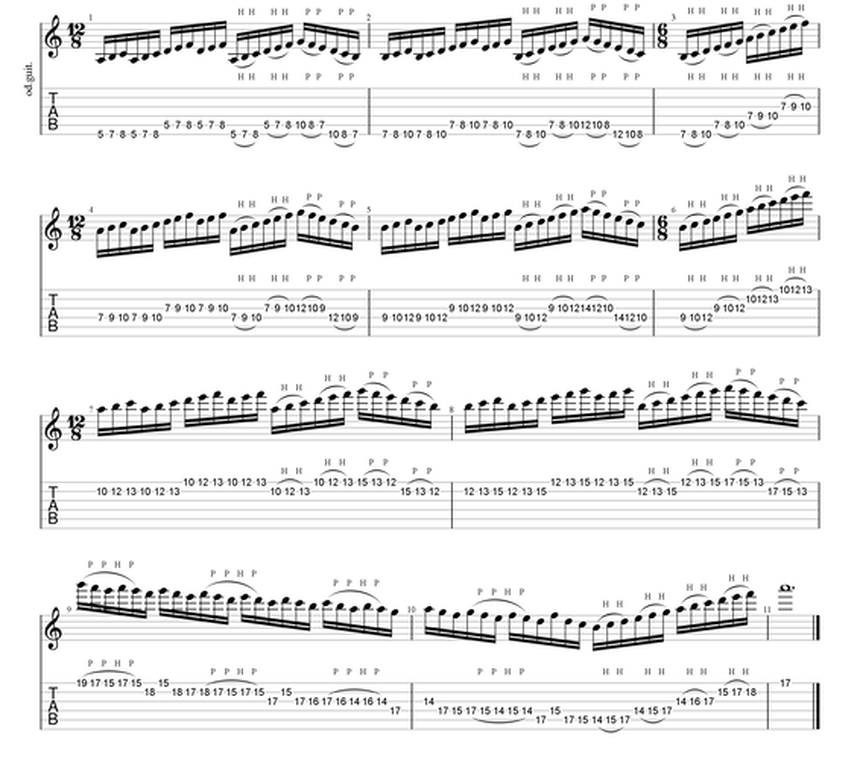
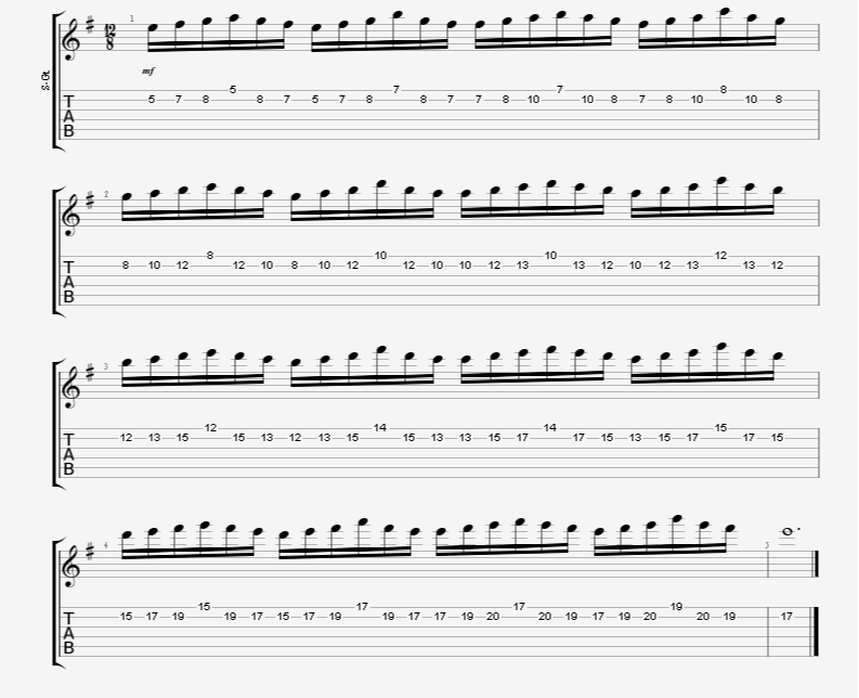
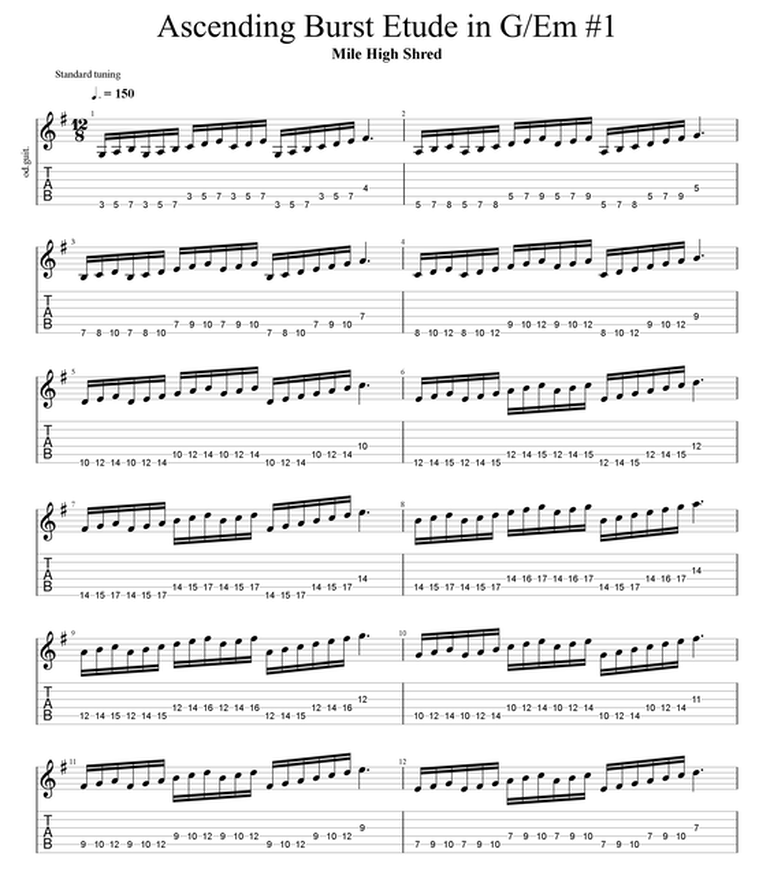
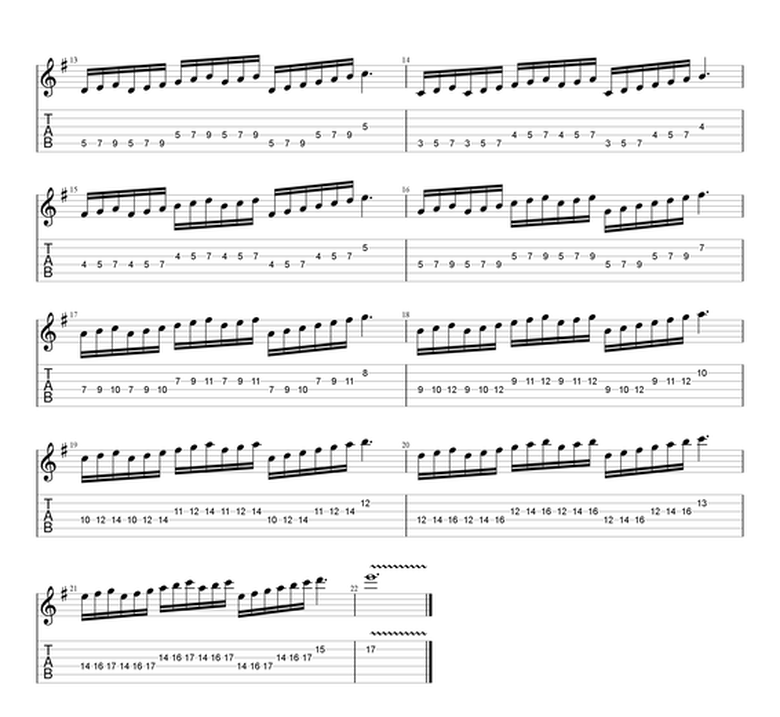
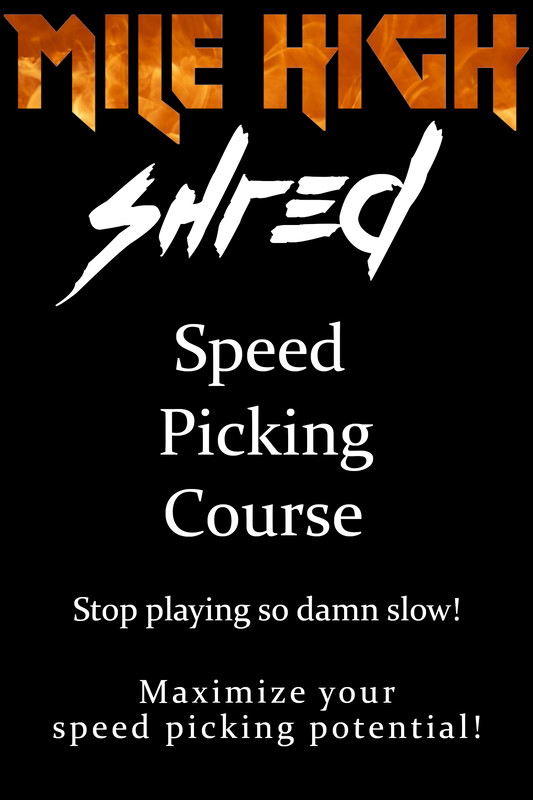
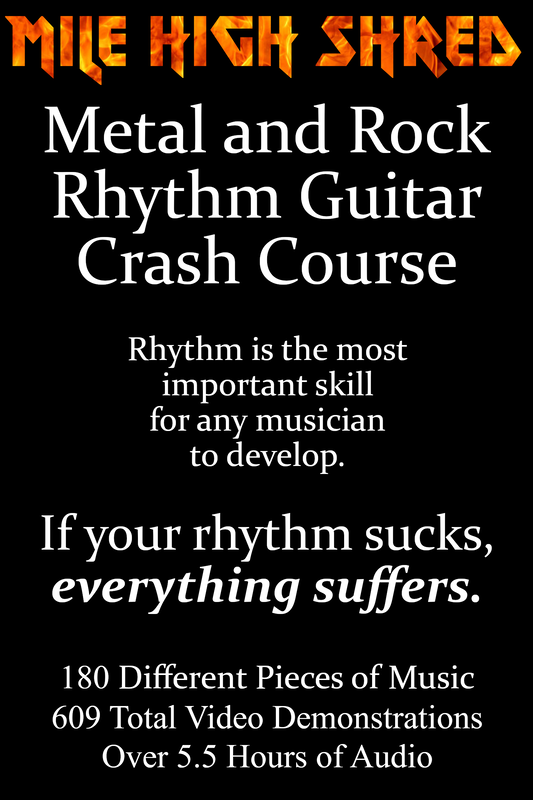
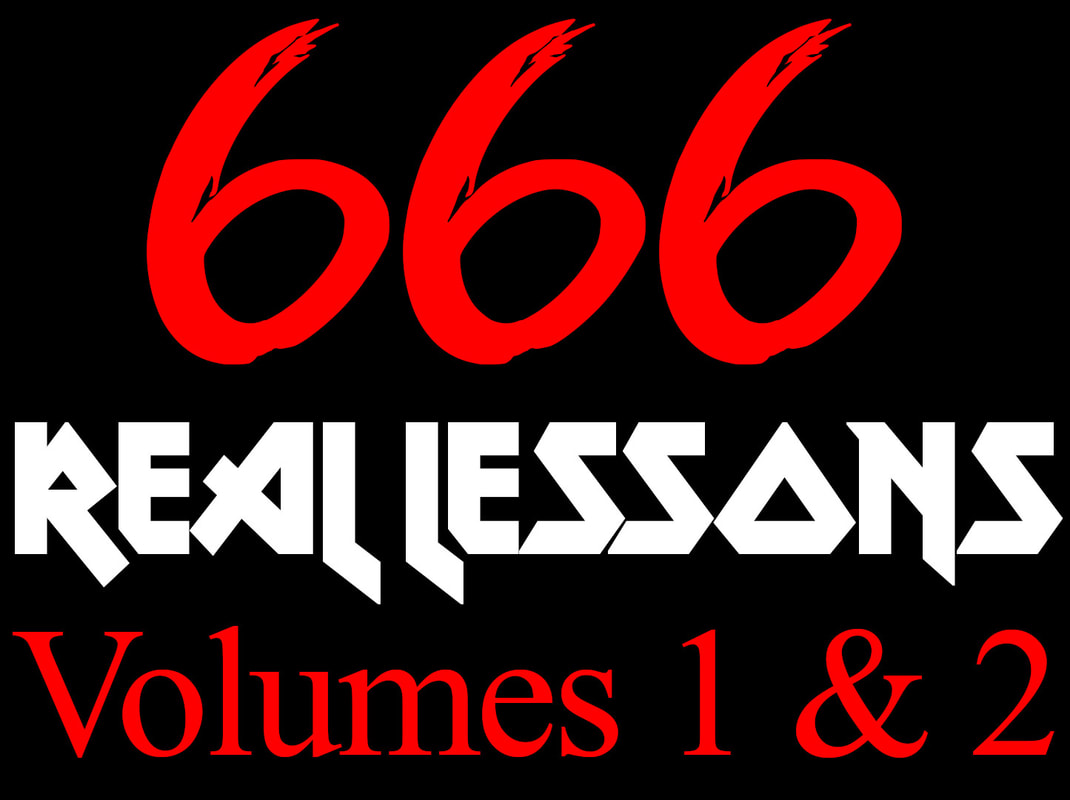
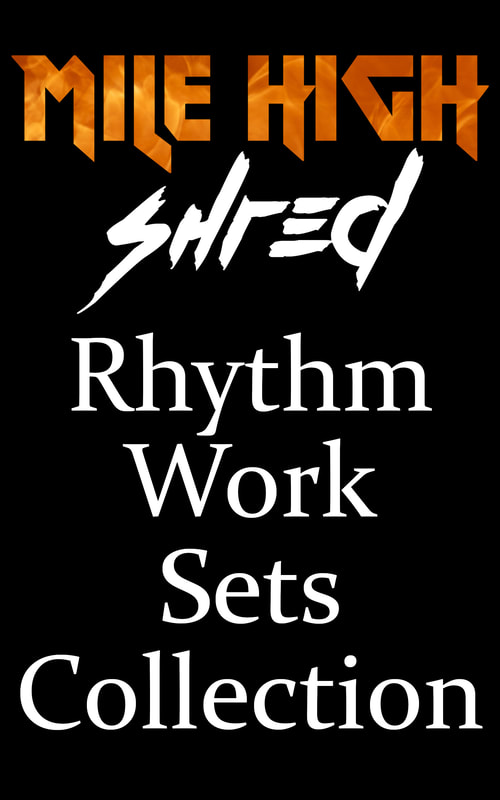
 RSS Feed
RSS Feed